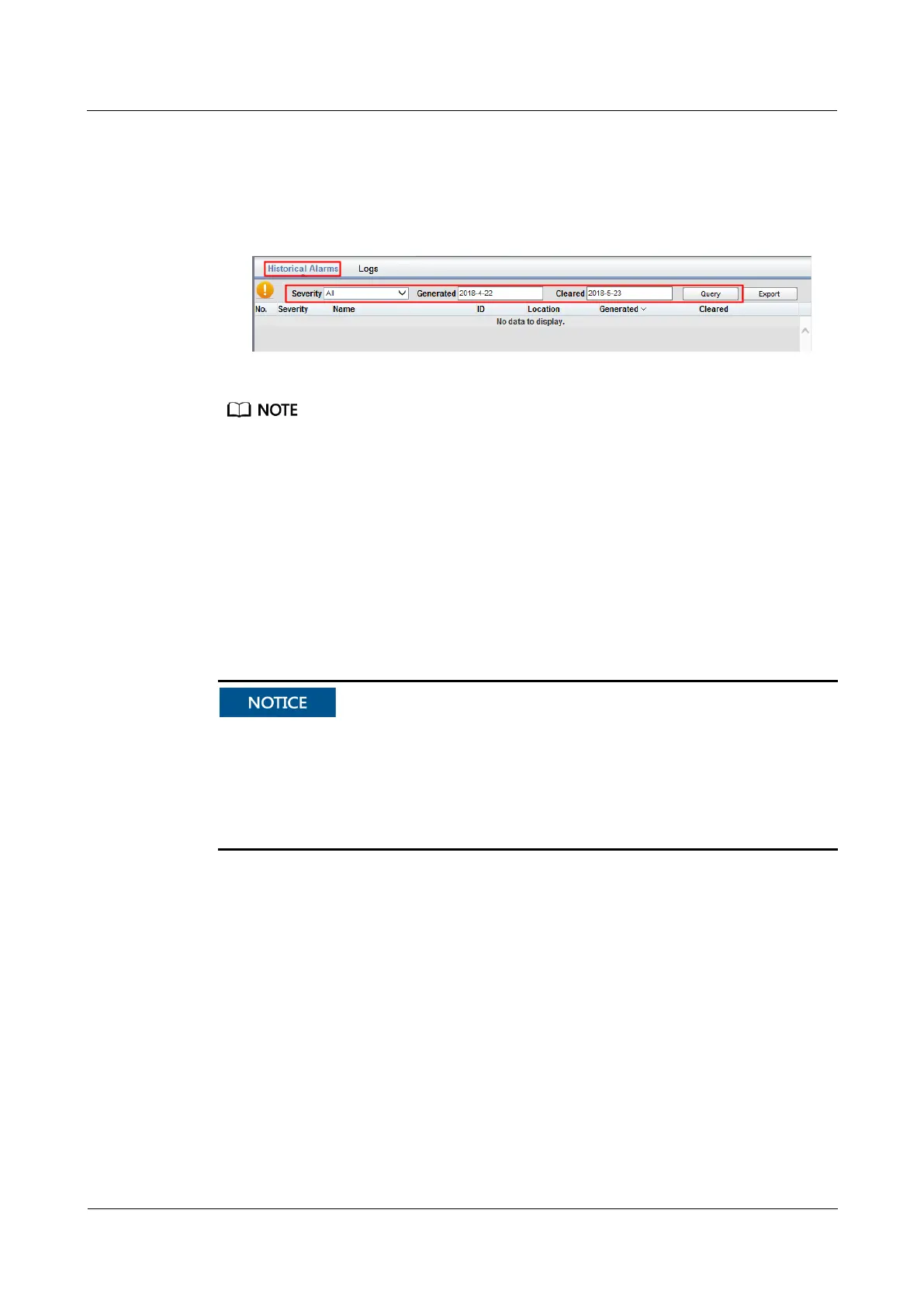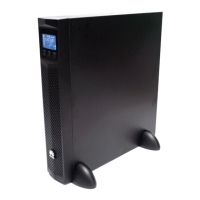UPS5000-E-(50 kVA-300 kVA)
User Manual (50 kVA Power Modules)
Copyright © Huawei Technologies Co., Ltd.
Old Web
1. Choose Query > Historical Alarms, and set Severity, Generated, and Cleared. Click
Query to view the historical alarm information.
Figure 5-24 Querying historical alarms
You do not need to query logs. Choose Query > Logs, click Export, and save the file.
2. Click Export and save the displayed webpage.
5.12 Setting Hibernation Mode
When the load power is small and stable, you can shut down the inverters in some power
modules so that these power modules enter hibernation mode and other power modules bear
all the load power. This improves the system efficiency in the case of small load power and
increases the power module service life. The hibernation function can be set on the WebUI.
Ensure that the load power is stable. If the system load power fluctuation is greater than
the rated capacity of half a module (for example, the single-phase load power fluctuation
is greater than 8.33 kVA for a 50 kVA module), the UPS may enter and exit from
hibernation mode repeatedly.
Check that the number of redundant power modules and racks are appropriate. If the
number is insufficient, the UPS may not enter hibernation mode.
Web
1. On the WebUI, choose Monitoring > UPS system > Running Parameter and set Paral
sys hibernate to Enable.
2. Set the module cycle hibernation period to an integer ranging from 1 to 100. The default
value is 30.
